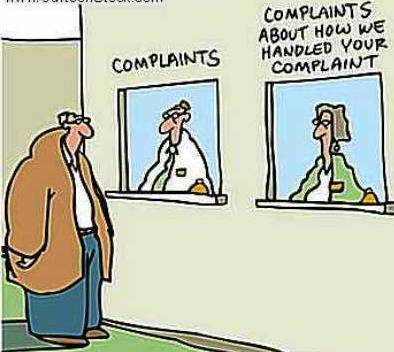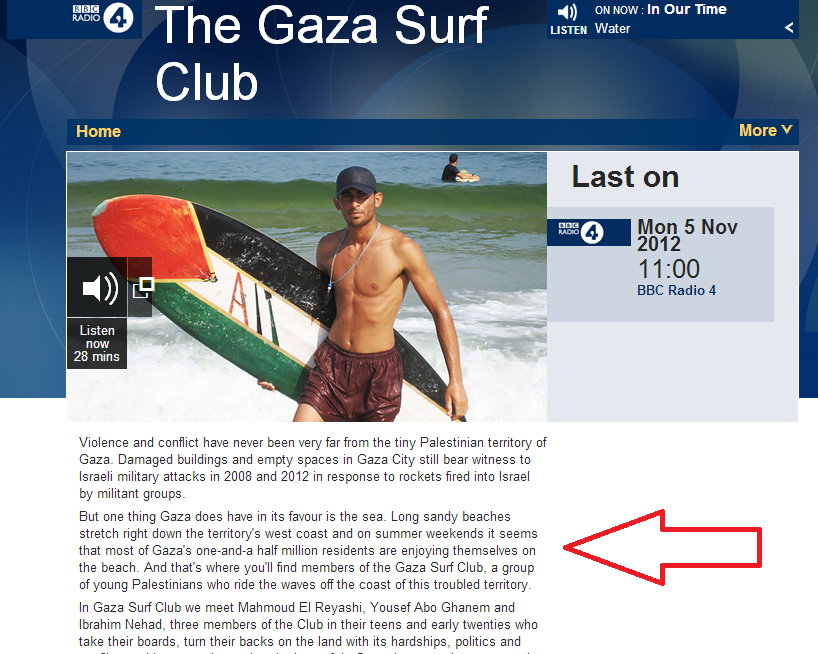Earlier this month we noted a Times report on the subject of the BBC Trust’s Editorial Standards Committee’s upholding of a complaint against an edition of the ‘Today’ programme broadcast on June 10th 2011. 
The BBC Trust has now published its findings and they can be read on pages 9 – 23 here.
Beyond the substance of the complaint itself, the ESC also relates to the fact that it took a shocking two and a half years for the complaint to be resolved and documents the serial failures of the BBC’s complaints mechanism to adhere to its own standards. [all emphasis added]
“The Committee noted the detailed timeline of how the complaint had been handled which had been compiled by the Editorial Adviser. It noted in particular the following points:
*the Stage 1A response from Audience Services took 65 working days, against the target of 10 days.
*the Stage 1B response was not forthcoming until the complainant wrote to the Director of News to inquire why he had not received a reply to his letter.
* the Stage 1B response from Audience Services was received approximately 250 working days after the complainant’s submission (the target is 20-35 working days).
*the ECU sent an undated provisional finding to the complainant approximately 60 working days after he asked the ECU to investigate. This was about 20 working days later than he had been advised he could expect to receive a response (it later transpired that the finding was sent in error and had been intended for circulation internally; that provisional decision to uphold his complaint was subsequently reversed).
*three months later, on 5 March 2013, having received no further notification, the complainant wrote to the ECU to inquire about the final outcome of his complaint.
The Head of the ECU responded promptly stating that something had “gone badly amiss” with the handling of the complaint and he would respond fully within a week.
*on 19 March 2013 the Head of the ECU wrote to the complainant saying he should not have received the undated provisional finding he was sent in late 2012:
“What seems to have happened is that a draft of my provisional finding which was intended for internal consultation was sent to you in error. I should explain that the procedure, when we’re minded to uphold any aspect of a complaint, is to allow a period for the BBC Division responsible for the item complained of to make any representations, and I put the proposed finding to the Division – in this instance, News – in the form of a draft letter to the complainant. The reason for this part of the complaints procedure is that the programme-makers and their editorial management don’t have right of appeal to the BBC Trust, whereas complainants do. The consultation period is therefore their last opportunity to correct any errors on our part, or to make a case for altering the finding.”
*the Head of the ECU said that he had received representations from the BBC’s Jerusalem Bureau and from the BBC correspondent which had caused him to change his initial view that the item had been misleading in one respect. He was now not intending to uphold the complaint.
*this substantive Stage 2 finding was issued six months after the complainant had first written to the ECU and almost two years after he had initially lodged the complaint.
* the complainant challenged the finding within the time scale he had been provided. He heard nothing, and five months later on 17 September 2013 he wrote to the ECU inquiring what had happened.
The Head of the ECU responded on 20 September 2013:
“I must apologise profusely for my long silence. An office move in July caused some disruption, and it appears that our correspondence was one of the casualties of it. I have now retrieved the papers, and am reviewing the issues and arguments afresh. I shall aim to give you a definitive ruling by the end of the month, though if circumstances arise in which further consultation with News management is required, it may take me a little longer. In that event, I shall write again to let you know the likely extent of the delay.”
The Head of the ECU wrote to the complainant on 15 October 2013 advising that he remained of the view that the complaint should not be upheld. He again apologised for the delays which had beset the process.
The Committee noted the reasons given by Audience Services for the Stage 1 delays and by the ECU for the delays and mismanagement at Stage 2 appear to have been the result of an unfortunate series of human errors. The Committee noted the complainant had received an apology from Audience Services. The Head of the ECU had acknowledged the chapter of accidents were inexcusable and that it was an extremely poor example of complaints handling. 
The Committee noted this aspect of the complaint related to 19.4 of the Editorial Guidelines which requires the BBC to observe the complaints framework, including the stipulated timelines.
The Committee noted that the relevant test related to the following clause from section 19.4.2 of the Accountability guideline:
“Complaints should be responded to in a timely manner”
The Committee said the delays at Stages 1 and 2 and the inadvertent dispatch of the provisional finding to the complainant ahead of its circulation internally were deeply regrettable. The Committee added its apology to those already made to the complainant and recorded its dismay that a complaint could be so seriously and repeatedly mishandled.
The Committee noted the complainant’s query in his submission for this appeal as to whether it was routine that complaints were treated in this way and whether in effect the procedure was fit for purpose. The Committee advised that the errors in complaint handling on this occasion were in its view unprecedented, that the complaints procedure outlines clearly how the BBC is required to deal with complaints, along with the required time scale and that this had made it possible for the BBC Trust to speedily and transparently adjudicate on the allegation. The Committee was satisfied that the problems which had beset this complaint at each stage were not the result of any shortcoming in the procedure itself.”
Ah – so that’s alright then.
Of course the many other members of the BBC’s funding public who have written to BBC Watch to inform us of unexplained delays to replies to complaints they have made – and in some cases the complete absence of any response whatsoever – might be somewhat disconcerted by the glaring complacency which enabled that final line to be written.




